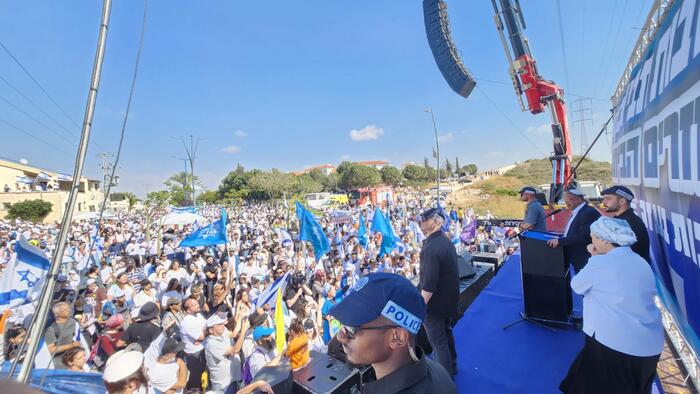On Monday, a significant conference titled “Preparing to Resettle Gaza” took place in southern Israel, organized by the Israeli settler organization Nachala and members of Prime Minister Benjamin Netanyahu’s Likud party. Attended by numerous Knesset members and government officials, including at least ten Likud party members, the event highlighted a renewed interest in re-establishing Jewish settlements in the Gaza Strip. May Golan, the Minister for Social Equality and a key figure in Netanyahu’s government, spoke at the conference, invoking the term “Nakba” to describe the planned hardships for Palestinians in Gaza. Her rhetoric indicated a commitment to aggressive policies aimed at displacing Palestinian people, indicating that the historical context of ethnic cleansing during the founding of Israel is still invoked in contemporary discussions.
The atmosphere at the conference was charged with radical nationalism, evident from the crowds chanting for National Security Minister Itamar Ben Gvir, who suggested a harsh approach toward Palestinians. His remarks included calls for the voluntary transfer of Gaza’s Palestinian population to other countries, establishing a narrative that this transfer was not merely desirable but an obligation. The suggestion of making Gaza “uninhabitable” through military action or starvation has raised serious ethical questions about the plans for the region and highlighted a disturbing disregard for civilian life, showcasing the violent undercurrents associated with current Israeli policies.
Prominent figures at the conference, such as Finance Minister Bezalel Smotrich, reinforced the theme of territorial expansionism, with particular focus on establishing Jewish settlements quickly and vigorously. Daniella Weiss, a leader in the settlement movement, spoke optimistically about the imminent return of Jewish settlers to Gaza, suggesting that such a transformation could be realized within a year. Her assertive vision of bringing Jews back into Gaza indicated a broader ambition of territorial reclamation beyond Gaza itself, citing a historical narrative connecting modern aspirations to the ancient borders of greater Israel.
This conference represents not only a political event but also a manifestation of deep-rooted ideologies within segments of Israeli society that advocate for aggressive expansionism at the expense of Palestinian sovereignty. The readiness to feature extinction narratives alongside calls for relocation underscores a troubling embrace of militaristic and exclusionary tactics. As the Israeli government appears unwilling to pursue ceasefire negotiations with Hamas, its shift towards gradual annexation of Gaza indicates a long-term strategy aimed at consolidating territorial gains through any means necessary.
The language and commitments displayed at the conference have drawn significant attention and criticism both domestically and internationally, as they reflect ongoing tensions and conflicts between Israelis and Palestinians. The implications of these actions threaten to exacerbate an already decaying regional stability. The potential for violence looms large, especially given the threats posed to those who refuse to comply with evacuation orders. The rhetoric around “voluntary transfer” starkly contrasts with the harsh realities faced by Palestinian civilians, further complicating the humanitarian situation in Gaza.
As the rhetoric surrounding the Gaza Strip continues to evolve towards more extreme forms, the fundamental question remains about the future of peace and coexistence in the region. The declarations made by key officials at the conference reveal a commitment to policies that could radically alter the demographic landscape of Gaza, raising ethical and moral dilemmas about the rights of the Palestinian people. The potential for reasserting Jewish settlements amidst the current Palestinian displacement narrative may serve as a critical point of contention in the ongoing struggle between national identities, thereby shaping the unfolding dynamics of the Israeli-Palestinian conflict.

